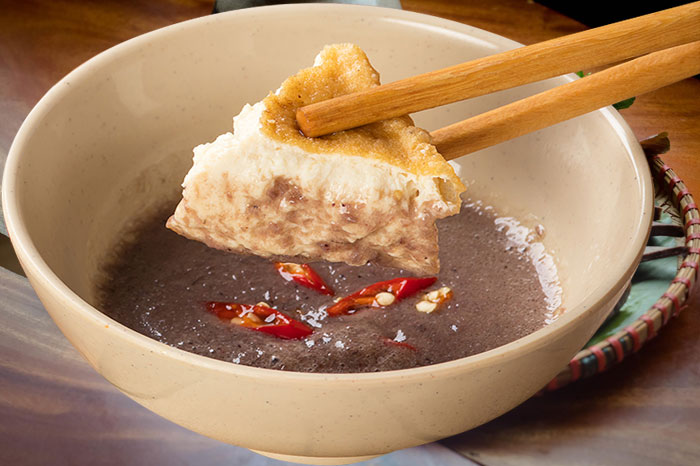
Mam tom - shrimp paste in 4 popular Vietnam dishes
- on Jan 13, 2021 By: Ngoc Nguyen
Shrimp paste, “mam tom” in Vietnamese, a product of Vietnamese creativity, has long become an extremely special spice in Vietnamese cuisine. It plays an important, decisive role for the quality and flavour of the dishes. However, like durian, the smell of this paste is not pleasant to foreigners, even to some Vietnamese. So let's discover some must-try dishes of this ingredient.
1. Bun dau mam tom (rice vermicelli with fried tofu)
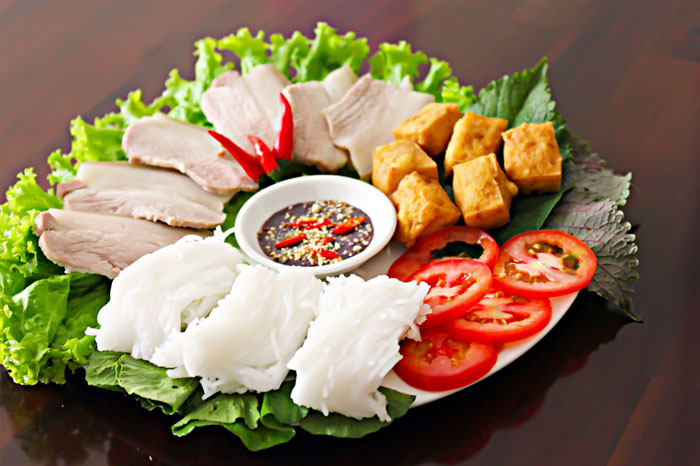
Being one of the most popular dishes in the country, rice vermicelli with fried tofu is considered the symbol of the epitome of Vietnamese cuisine in general and Hanoi people in particular.
At the beginning, the fatty tofu is cut into small pieces. We prepare vegetables, cucumbers and shrimp paste mixed with vinegar and sugar. When the bowl of shrimp sauce is sparkling, add a few drops of the boiling oil and some chilli slices.
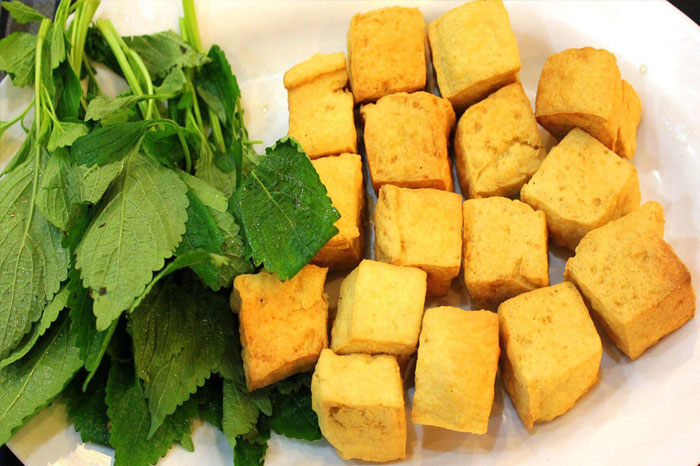
The current addition of meat and pork in this bun dau mam tom aims to make this dish richer in protein. The latter is accompanied by rice vermicelli, especially from the Phu Do village, everything is carefully arranged in the flat basket for customers.
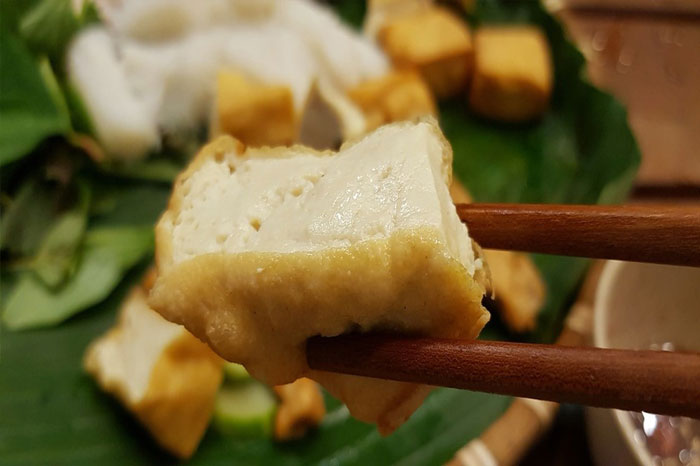
Taking vermicelli, fried tofu with fragrant vegetables dipped in the sauce, we will feel the sweetness and the fragrance of the dish, the distinctive characteristics of each spice.
Since the taste of this paste is too strong, many westerners cannot eat it. Do not worry! It may be replaced by fish sauce.
2. Bun rieu cua (rice vermicelli with crabs)
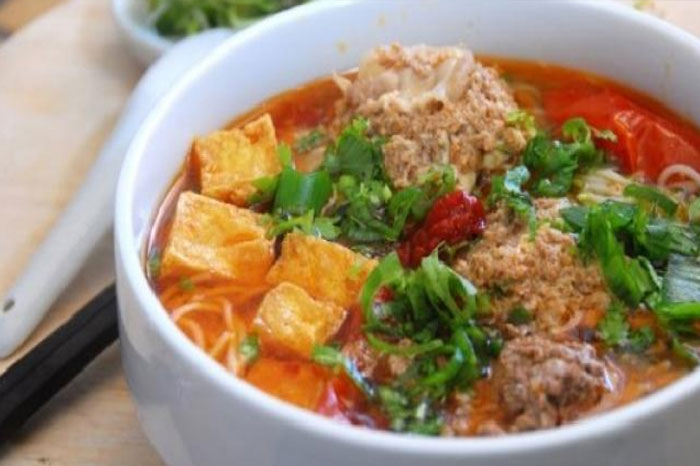
Bun rieu cua is a Vietnamese rice vermicelli soup served with freshwater crab and shrimp paste. To prepare this dish, you must first grind crabs, so a fine paste is obtained. This paste is filtered and the "crab juice" serves as the basis for the broth with the tomatoes.
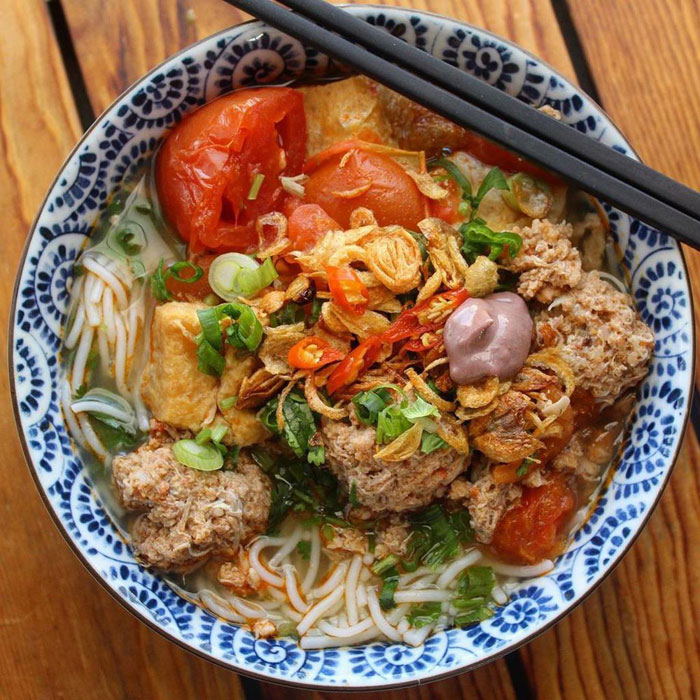
The remaining pieces of crab are cooked for making crab cakes. The dish is subtly seasoned with the traditional shrimp paste which makes this bun rieu cua a very fine and excellent taste.
3. Bun thang
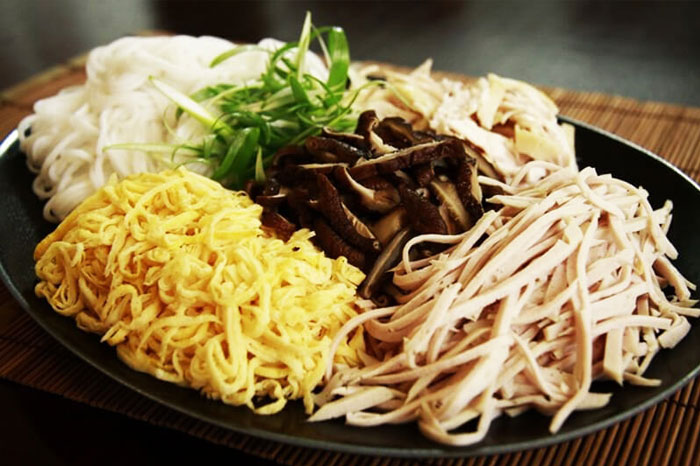
Bun thang is present in the list of typical Hanoi specialities. This dish is traditionally eaten after the holidays of “Tet”. To avoid waste, the Hanoi people reuse all the leftovers from New Year's dishes, to garnish their soup with rice vermicelli.
The preparation of this bun thang is quite complex. First, you have to put together about 20 different ingredients. Then you cook chicken broth and pork bones with dried shrimp.
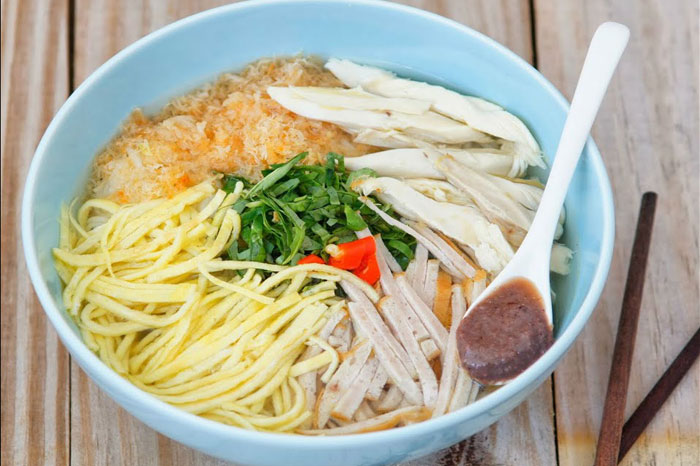
This dish is served in a bowl with rice vermicelli and a little garnish which consists of a few slices of Vietnamese bologna, chicken, and a thin omelette. At the end, we add a teaspoon of typical shrimp paste and a drop of “water scorpion” (ca cuong) essence, an expensive but essential ingredient.
It's hard to understand why such a delicate and sophisticated noodle dish comes with a spice... smelling like shrimp paste? Perhaps it's the invisible string that ties the ingredients together, helping to make the hot broth more appealing.
4. Boiled pork tripe
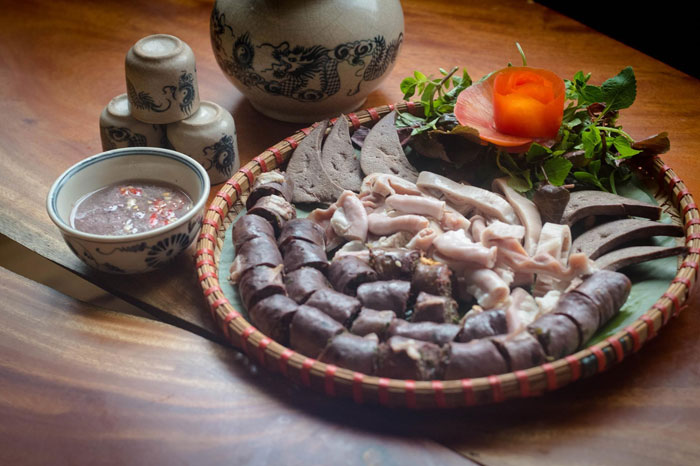
The internal organs of pigs such as the stomach, heart, liver, tongue, intestines… are carefully cleaned before being boiled.
This simple dish is served with shrimp paste, accompanied by Vietnamese aromatic herbs.
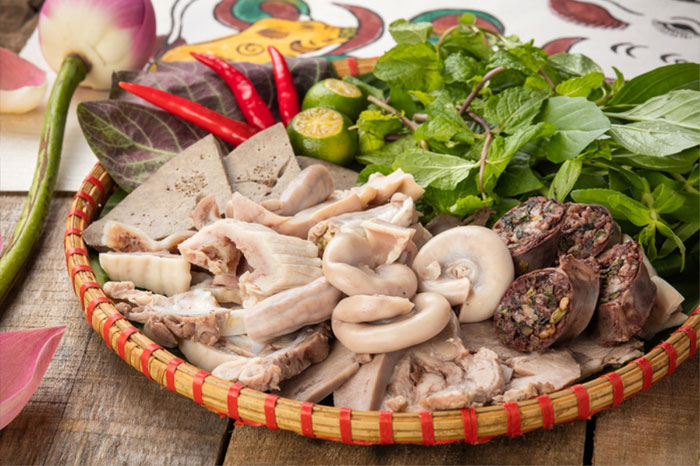
Boiled tripe is only eaten in popular restaurants, and in the early hours. From all walks of life, customers often come for breakfast and lunch, rarely or never for dinner.
Related articles:
>> The multi-coloured cuisine of Vietnam
>> Vietnamese Rice Cuisine: 8 Dishes to Try Once in Your Lifetime
>> Top 10 culinary specialities of southern Vietnam to discover absolutely!
 Español
Español Français
Français






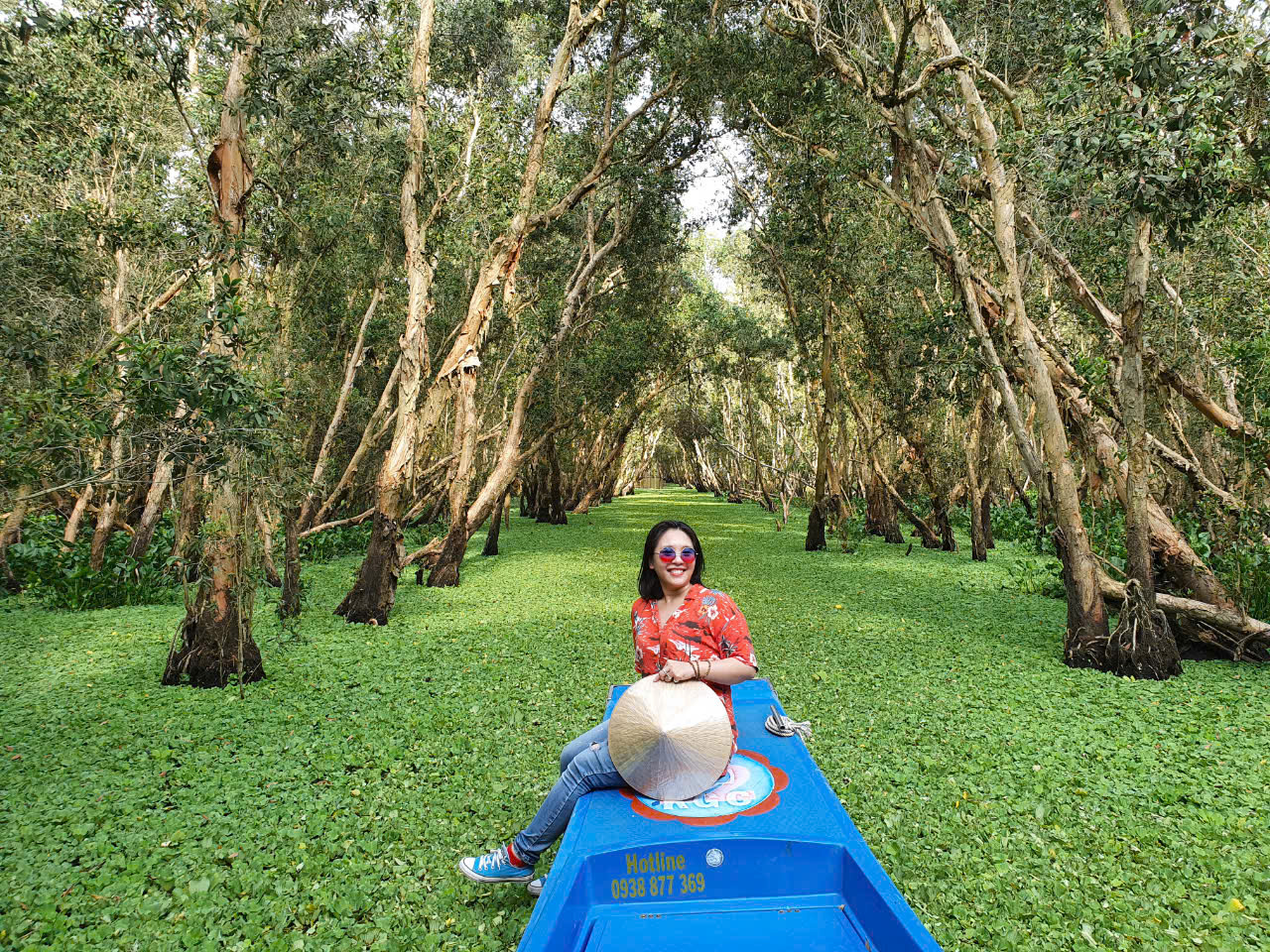

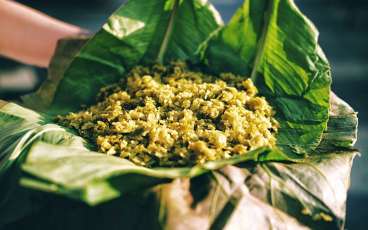
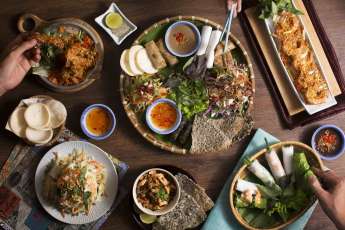

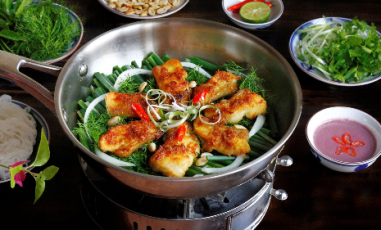
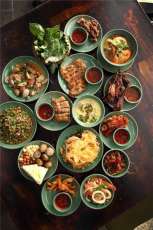







Morgane Ter Cock
on Dec 18, 2025HerbertPhomaMS
on Oct 19, 2025Lilyan Cuttler
on Oct 15, 2025Avenue17XC
on Sep 14, 2025Avenue18JL
on Jul 21, 2025